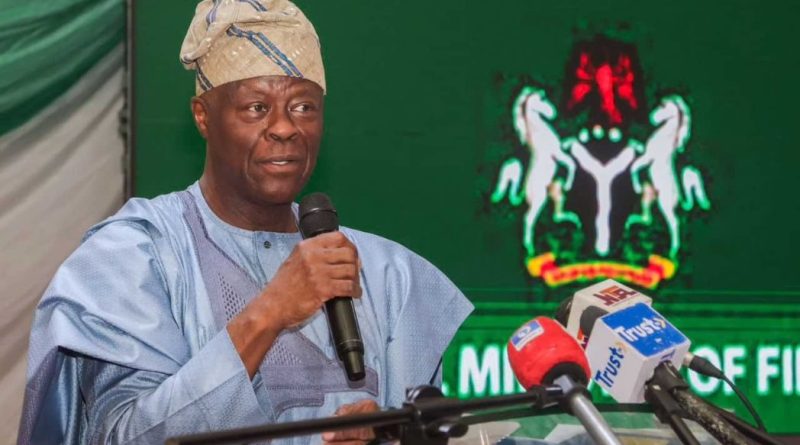FG ends revenue deductions by agencies, orders full remittance to federation account
The Nigerian Government has abolished the long-standing practice that allowing revenue agencies to deduct a share of funds as the cost of collection before remitting proceeds to the federation account.
Finance Minister and Coordinating Minister of the Economy Wale Edun announced the policy shift in Abuja on Thursday at the launch of the National Development Update.
According to him, the decision, approved by President Bola Tinubu, is aimed at tightening fiscal discipline, enhancing transparency and ensuring that all revenues are available for distribution among the three tiers of government.
Agencies like the Nigeria Revenue Service (formerly the Federal Inland Revenue Service), the Nigeria Customs Service (NCS), and the Nigerian Upstream Petroleum Regulatory Commission (NUPRC) have for years kept back a portion of their collections to fund their operations.
That has impacted the cash available to be shared monthly by the federal government and sub-nationals, and has made the accountability process more opaque.
“Funds have flowed to the Federation Account, but the point is this, efficiency of that spending is critical. We have been mandated by His Excellency, Mr President, to take a look at deductions, not just those for the cost of collection, but deductions generally,” Mr Edun said.
“When you look at the gross figure, you see all kinds of deductions before you get to the net distributable figure, which goes to the federal, state, and local governments. And I must inform you that even during the last FAAC allocation, most of those deductions have been removed once and for all,” he added.
The new directive, the minister observed, is in line with the constitutional requirement that all revenues be remitted into the federation account before distribution using the approved sharing formula.
The current administration is implementing the reform as a key part of a fiscal overhaul that targets public finance efficiency, leakage reduction, and expansion in the share of funds available to subnational governments, Mr Edun said.
READ ALSO: Despite heavy campaign, Trump loses Nobel Peace Prize to Venezuelan politician
Until now, the cost-of-collection arrangement served as the main funding source for key revenue agencies.
It allowed the Nigerian Upstream Petroleum Regulatory Commission to retain almost four per cent of royalties and rents collected.
The Nigeria Revenue Service’s share of the revenue collected for 2024 stood at N254.8 billion, and is projected to get N43.8 billion for the first half of this year.
The Customs Service, which previously took seven per cent of collections, now operates on a four per cent Free on Board levy on imports, following a directive by the House of Representatives in August.

